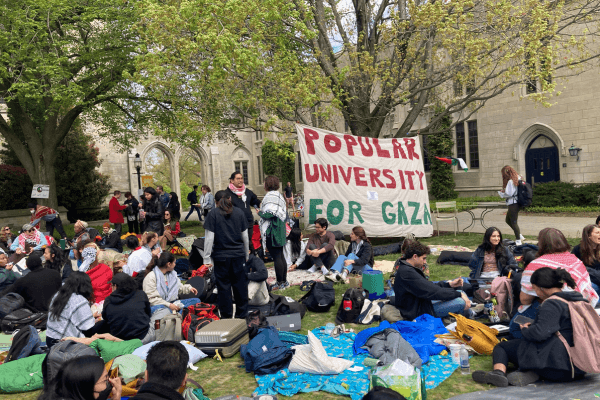Not every journalist can say they’ve seen Mr. Rogers naked. But Tom Junod beheld the late children’s television host in all his 143-lb. glory when he spent a summer trailing him, even to the locker room of the gym where Mr. Rogers swam every day.
That unlimited access resulted in “Can You Say . . . 'Hero?'” Junod’s 1998 Esquire magazine cover story of the man whose cuddly, stuffed animal voice and slow charm helped raised half the kids in this country, including this reporter. The story is the basis of the new Sony film A Beautiful Day in the Neighborhood starring Tom Hanks as Fred Rogers, which opens in theaters on Nov. 22.
Like the magazine story, the film explores Rogers’ quiet spirituality. He was an ordained Presbyterian minister who saw children’s television as his ministry. But on occasion, he would adopt adults as “projects,” and Junod, who was in his 30s when he met Rogers, became the focus of the older man’s prayers and guidance. They were friends for four years, until Rogers’ death from stomach cancer in 2003.
Now Junod is the one being interviewed by journalists in advance of the film. He has done a lot of thinking about why Rogers took an interest in him when he usually limited his time with journalists to 20 minutes.
“The thing about Fred was that he was a really complicated man who had a very simple idea which was that at the center of everything, at the bottom of the universe, at the top of the list, was the simple fact that God loved you,” Junod said earlier this month. “Fred wrote to me many times of the simple fact that God never gives up on you. And I think that Fred’s idea of grace was the manifestation of that.”
The film departs from the original article in important ways. First, Junod has been transformed into Lloyd Vogel, played by Matthew Rhys of “The Americans” fame. Lloyd has daddy issues, which Junod did not (at least not in the same way) something he outlines in a recent piece about Rogers for The Atlantic Monthly. But Junod says he recognizes Vogel’s anger and self-doubt and thanks Rogers for helping him through a tough time. It was proof, he said, of what he calls Rogers’ “spiritual genius.”
“I think Fred saw in me a person who needed to be trusted because at the time I was not trusting myself,” Junod said. “I think Fred proceeded methodically to let me know I was trusted. His ultimate message was that I could be trusted because I was loved.”
The film also gets right Rogers’ deep belief in God and Junod’s persistent doubt. Junod was raised a Catholic but fell away from the Church. For a while he attended a Presbyterian church, but now does not. He is still interested in the spiritual, he says, and a lot of that stems from his relationship with Rogers. This summer, as publicity for the movie was heating up, Junod recovered 70 emails he exchanged with Rogers from an old laptop, many of them about theology.
Also clear to Junod is that Rogers’ essential goodness was something he worked at through daily prayer and scripture reading and an almost preternatural ability to empathize — another aspect of the man the film gets right.
“We are at a point right now were we think of Fred as so good he is almost an alien presence,” Junod says. “But it was his practice. And to me that is a very hopeful because it makes his example more attainable. I am not saying we can be as good as Fred, but we can work at it.”
Junod was given a great gift in his access to and friendship with Rogers, and he knows that. With great gifts come great responsibility, but that never feels like a burden to him.
“I have been asking myself: What was Fred leading me to?” Junod says. “And it is right there in the story — he leads me in that story to prayer. Praying does not come easily to me, it never has. But I have decided to try it a little bit. I don’t ask for much and I think that is the point. I just try to establish some sort of connection somewhere. I think that is answer to that question of what Fred wanted from me. I think he thought that a life of prayer was the way to live. And I am trying to take Fred’s example quite seriously.”
Got something to say about what you're reading? We value your feedback!







